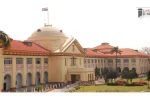SC-ST Act Accused can’t directly ask HC for anticipatory bail, Go to special court first P&H HC

The SC-ST Act, the accused cannot simply approach the HC for anticipatory bail and must first approach the Special Court, the Punjab and Haryana High Court held. The anticipatory bail application under Section 438 of the Cr.P.C. for a FIR filed under Section 3(1)(r) of the Scheduled Castes and Scheduled Tribes (Prevention of Atrocities Act, 1989) and Section 384 of the IPC was being considered by Justice Ashok Kumar Verma’s panel.
In this instance, Pardeep Kumar, Incharge, HSWC, filed a complaint, leading to the filing of a FIR against the petitioner.
In a written complaint, Pardeep Kumar claims that the petitioner threatened him by using derogatory terms connected to caste and by putting him in a humiliating position in order to get money.
The question before the bench was whether the petitioner who is alleged to have broken the SC/ST Act can directly approach the court by filing an application under Section 438 of the Criminal Procedure Code for grant of anticipatory bail when the said statute provides an absolute prohibition on the applicability of Section 438 of the Criminal Procedure Code’s provisions.
The bench cited the Supreme Court’s observation that the bar imposed by sections 18 and 18A(1) shall not apply if the complaint does not establish a prima facie case for the applicability of the provisions of the SC/ST Act in Prathvi Raj Chauhan v. Union of India and Others. The issue is how to argue the “lack of prima facie case” in the appropriate forum.
The institution of Special Courts and the grant of appellate power to the High Court under Sections 14 and 14A of the SC/ST Act were both accompanied by the ruling, according to the High Court, in light of the aforementioned case.
The bench stated that there is also an explicit desire to exclude the High Court’s competence to issue anticipatory bail after citing a few decisions. Therefore, it is abundantly evident from the law’s unambiguous statement that only the Special Court or the Exclusive Special Court may receive a bail application under the SC/ST Act. Therefore, section 438 of the Cr.P.C. explicitly and by required intention fully excludes the High Court’s original jurisdiction.
According to the High Court, “Once the concurrent jurisdiction of the High Court under section 438 Cr.P.C., which is also original in its nature and scope, is invoked, an application for anticipatory bail alleging the concurrent jurisdiction under that provision is excluded.” As a result, section 14A permits the High Court to exercise its appeal jurisdiction on its own. In a similar vein, the Sessions Court does not have jurisdiction to hear bail applications; only the Special Courts can. The Kerala Sessions Courts’ notification as Special Courts is a distinct topic. The requirement of the statute that only the Special Court can handle matters, including applications for bail arising under the SC/ST Act, cannot be derogated from by notifying the Sessions Courts as Special Courts.
According to the court, the petitioner should have applied for anticipatory bail under Section 438 of the Cr.P.C. in the Special Court. In light of the foregoing, the High Court dismissed the petition for anticipatory bail. The order granting or rejecting the anticipatory bail pursuant to the provisions of the SC/ST Act shall be amenable to the appellate jurisdiction of the High Court under Section 14A of the Act and not Section 438 Cr.P.C.
Vinod Bindal
vs
State of Haryana






